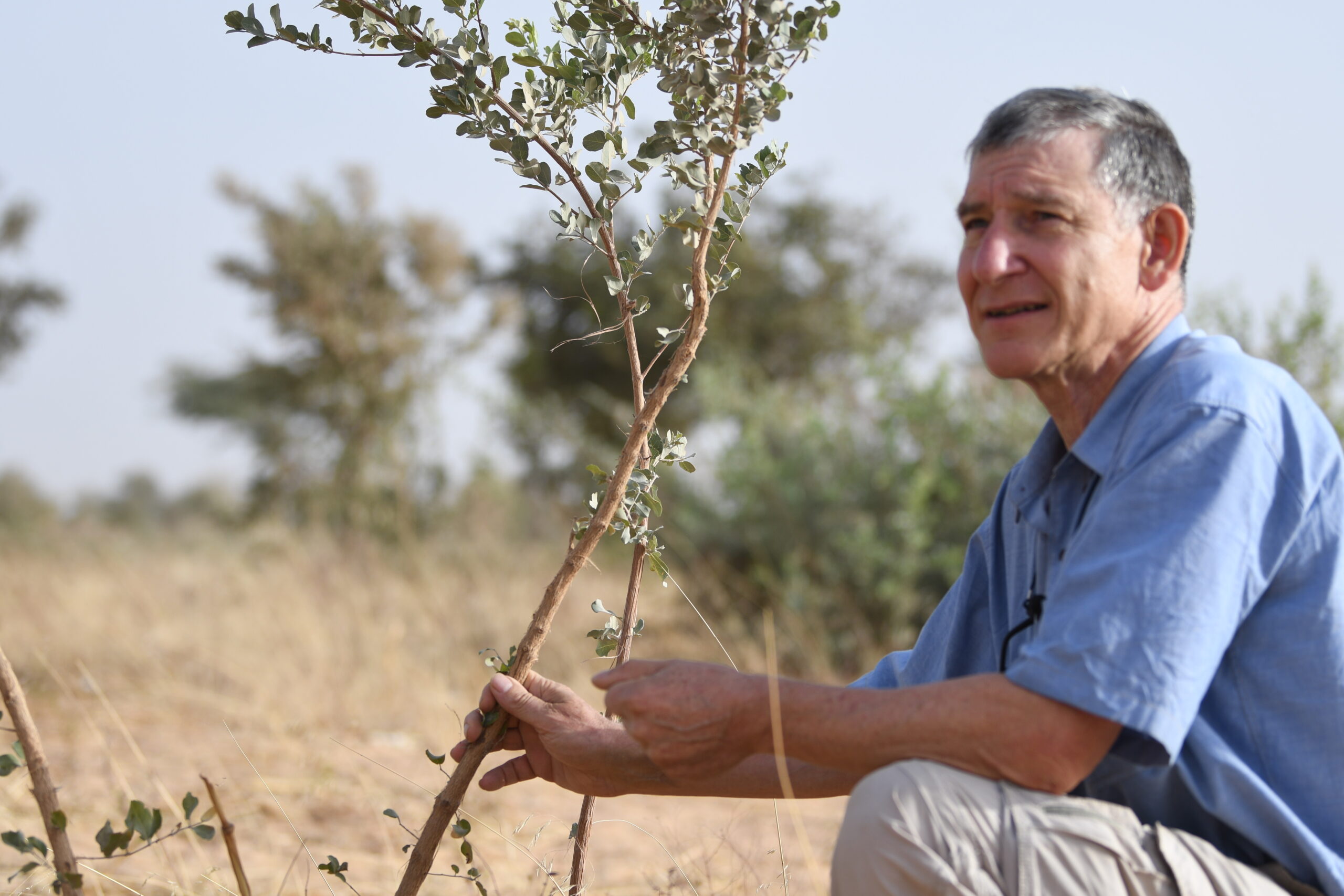Earth, wind and fire: A Pentecostal approach to creation care
 Pentecostalism has been the fastest-growing Christian movement of the past century, with an estimated 280 million Pentecostals today, many in majority world contexts. If the Charismatic Movement within traditional Protestant and Catholic churches is included, there are 500+ million people worldwide influenced by Pentecostal theology and practice [*]. In addition, all mainstream Christian churches celebrate the Day of Pentecost as the birthday of the Church and affirm the transforming work of the Holy Spirit in the lives of believers and churches.
Pentecostalism has been the fastest-growing Christian movement of the past century, with an estimated 280 million Pentecostals today, many in majority world contexts. If the Charismatic Movement within traditional Protestant and Catholic churches is included, there are 500+ million people worldwide influenced by Pentecostal theology and practice [*]. In addition, all mainstream Christian churches celebrate the Day of Pentecost as the birthday of the Church and affirm the transforming work of the Holy Spirit in the lives of believers and churches.
Yet, [tweet_dis]Pentecostalism and the work of the Holy Spirit have featured little in the growing Creation Care and Ecotheology movements. There are a few notable exceptions[/tweet_dis], such as A. J. Swoboda’s important writings [1,2], a Korean-Australian scholarly dialogue [*], and a wonderful Pentecostal mangrove regeneration project on the coast of Andhra Pradesh, India that I once visited, where the leaders told me that the Spirit had led them to do this work, but they didn’t yet have a theology to understand it! There are various reasons for Pentecostalism’s lack of engagement with ecology which are beyond the scope of this brief blog but, in general, the Holy Spirit has been individualized within Pentecostalism and institutionalized within traditional denominations.
However, if we turn to the Bible, we see that the Holy Spirit is far more than a privatized resource for spiritual experiences or even God’s gift to inaugurate the Church. [tweet_dis]The Holy Spirit is intimately and intrinsically connected to all God’s work from the start of creation to the completion of the new creation[/tweet_dis]. Before the beginning of time, the Spirit of God was hovering over the face of the waters of chaos (Genesis 1:2). Jürgen Moltmann describes creation as “a trinitarian process: the Father creates through the Son in the Holy Spirit. The created world is therefore created ‘by God’, formed ‘through God’ and exists ‘in God”[3]. Life itself, the Spirit breathing into living creatures and human beings alike (Genesis 2:6, 19), is a gift of the Holy Spirit. It is the Spirit that animates creation, giving breath (ruach) and voice, nourishing and sustaining living creatures, and giving and removing the breath of life (Psalm 104:27–30). The bible frequently uses anthropomorphic language, talking of trees clapping their hands (Isaiah 55:12), stones crying out (Luke 19:40), and the land mourning (Hosea 4:3, ASV). This isn’t pantheism, but is rather a recognition that the Holy Spirit animates and permeates all of creation. As Moltmann notes, “It was modern industrial society which for the first time viewed the earth simply as matter, and no longer as holy. It is time for us to respect the holiness of God’s earth once more” [4]. David Kelsey describes the Spirit’s work as “circumambient” [5], symbiotically surrounding, permeating and connecting all of creation. In this sense [tweet_dis]the Holy Spirit is essentially the ecological Spirit, since ecology is the science of the relationship and interdependence of organisms and their environment, and these relationships exist profoundly in the Spirit[/tweet_dis].
However, the Holy Spirit’s work is not limited to creating and sustaining earth’s life-support systems. In the work of Jesus Christ, God’s renewal has begun, not just for sinful humanity but for broken creation. It is Jesus, with the Father, who sends the Spirit at Pentecost, a Spirit poured out on all flesh (Acts 2:17). The Greek word, sarx, refers to all animal kind rather than humanity (anthropos) alone, and is quoting from Joel 2:28, where the Hebrew, basar, is the same word for all the living creatures that Noah was to bring into the ark. Of course, at Pentecost it was Jesus’ human disciples who were filled and transformed but [tweet_dis]Joel’s vision reflects the clear biblical message that the Holy Spirit is active in all creation’s renewal, redemption and transformation[/tweet_dis]. In the words of Indian theologian, Metropolitan Paulos Mar Gregorios: “Christ and the Holy Spirit are related to the whole created order in three ways: by creating it, by redeeming it, and by finally fulfilling it in the last great consummation” [6].
The passage that states this most clearly is Romans 8. The first 16 verses mention the Holy Spirit 16 times, and teach the adopting, transforming, life-giving work of the Spirit in believers. Then the lens widens to include the whole creation, groaning in frustration as it waits expectantly for its anticipated liberation (vs.18–22). Where is the Holy Spirit here? The Spirit, present throughout creation, participates in creation’s groaning and our own (vs.23, 26) as God longs for creation’s renewal and restoration. Even more extraordinarily, the children of God – the Church – somehow participate in the groaning and liberation of creation. Murray Rae suggests that Jesus breathing on his disciples as they receive the Holy Spirit (John 20:22) is a deliberate evocation of Genesis 2:7 and shows that “The pattern of new creation is to be continued in the church because the Son has given his Spirit for the continuation of his work” [7]. How amazing! The Church is called to anticipate creation’s final renewal in prophetic witness and action. N. T. Wright comments, “[tweet_dis]The resurrection of Jesus and the gift of the Spirit mean that we are called to bring real and effective signs of God’s renewed creation to birth even in the midst of this present age[/tweet_dis]” [8].
[tweet_box design=”default” float=”none”]So, to be truly Pentecostal must mean seeking to participate in the life of God’s Spirit as the One who creates, sustains and renews all creation.[/tweet_box]
The gifts and fruit of the Spirit are not for ourselves alone, but are to be shared generously as, in the Spirit, we seek prophetically to share creation’s groaning, and as we share the love, joy and peace that the Spirit grows, in caring for our fellow creatures.
Footnotes:
[1] Swoboda, A. J. (2013). Tongues and Trees: Towards a Pentecostal Ecological Theology, Journal of Pentecostal Theology Supplement Series Book 40, Deo Publishing.
[2] Swoboda, A. J. (ed.) (2014). Blood Cries Out: Pentecostals, Ecology and the Groans of Creation, Pentecostals, Peacemaking and Justice Book 8, Wipf & Stock.
[3] Moltmann, J. (1993). God in Creation: A New Theology of Creation and the Spirit of God. Minneapolis, MN, Fortress Press, p.9.
[4] Moltmann, J. (1997). The Source of Life: The Holy Spirit and the Theology of Life. Minneapolis, MN, Augsburg Fortress, p.25.
[5] Kelsey, D. H. (2009). Eccentric Existence: A Theological Anthropology. Louisville, KY, Westminster John Knox Press, p.443.
[6] Gregorios, P. M. (1990). “New Testament Foundations for Understanding the Creation”. Liberating Life: Contemporary Approaches in Ecological Theology. C. Birch, W. Eaken and J. McDaniel. Maryknoll, NY, Orbis, p.43.
[7] Rae, M. (2008). “The Testimony of Works in the Christology of John’s Gospel”. The Gospel of John and Christian Theology. R. Bauckham and C. Mosser (eds.). Grand Rapids, MI, W. B. Eerdmans, p.299.
[8] Wright, N. T. (2007). Surprised by Hope. London, SPCK p.120.
Image by Gerd Altmann from Pixabay
We are happy for our blogs to be used by third parties on condition that the author is cited and A Rocha International, arocha.org, is credited as the original source. We would be grateful if you could let us know if you have used our material, by emailing [email protected].



Thanks David, this was so helpful! As a concerned pastor in Creation tide, we need the backing of clear theology. Thanks